North American fruits are from the Northern area of the American continent, thriving under various climates and ecosystems. The region offers a wide range of fruits, featuring numerous flavors and textures.
The temperate regions come with a bounty of berries and apples, while the subtropical areas produce citrus and tropical fruits.
These fruits are a part of the local diets and culinary traditions, appearing in everything from fresh snacks to preserves, desserts, and beverages. Also, you can even take a look at some of the drinks and food made using these fruits of North America.
Note that this list of North American fruits comes with both native and non-native varieties, so you can have a wider range of options.
North American fruits are from the Northern area of the American continent, thriving under various climates and ecosystems. The region offers a wide range of fruits, featuring numerous flavors and textures.
The temperate regions come with a bounty of berries and apples, while the subtropical areas produce citrus and tropical fruits.
These fruits are a part of the local diets and culinary traditions, appearing in everything from fresh snacks to preserves, desserts, and beverages. Also, you can even take a look at some of the drinks and food made using these fruits of North America.
Note that this list of North American fruits comes with both native and non-native varieties, so you can have a wider range of options.
List of 20 Common North American Fruits
Get to know 20 food varieties from North America to view them by colors, tastes, textures, and much more interesting information.
Orange
- Hungary
- Nepal
- Citrus
Orange is a round citrus fruit with a vibrant orange peel and segmented, juicy flesh. In North America, oranges are beloved for their sweet and slightly tangy flavor and bright, refreshing appearance.
The fruit has a firm yet juicy texture, making it a popular choice for fresh eating, juicing, and culinary use. Oranges are commonly enjoyed as a snack, added to salads, or used in desserts and beverages.
Grape
- Spain
- Berry
A grape is a small, round, or oval fruit about the size of a cherry that grows in clusters, with smooth skin varying in shades like green, red, or purple. Native to North America, grapes have a sweet or slightly tart flavor with a soft nature.
The fruit is widely used in various forms, from fresh consumption to dried raisins. Grapes are also essential in the production of wines, juices, and jellies.
They are a staple in many North American diets, appearing in fruit salads, desserts, and snacks.
Blueberry
- Canada
- Berry
Blueberry is a small, round fruit native to North America, featuring a deep blue to purple skin and sweet-tart flavor. The fruit has a smooth, slightly waxy surface and a juicy, tender texture.
These little berries are bursting with flavor when savored fresh, added to cereals, or incorporated into baked goods like muffins and pies. They are also popular in making jams, jellies, and sauces, with the fruit being loaded with antioxidants.
Cranberry
- Berry
Cranberry is a small, round fruit indigenous to North America, with a bright red skin and a tart, slightly bitter flavor. The fruit’s firm texture and smooth appearance make it an attractive fruit item.
Cranberries are typically not eaten fresh due to their tartness but are widely used in various culinary applications. They are commonly processed into juices, sauces, jams, and dried snacks.
Black Cherry
- Drupe/stone Fruit
Black cherry is a small fruit of a round shape with dark purple to black skin and a sweet-tart flavor. Indigenous to North America, it has a glossy appearance and juicy, tender flesh that is firm and succulent.
The fruit is commonly enjoyed fresh, used in jams, jellies, desserts, or processed into beverages and flavorings. Black cherries are also known for their use in traditional medicine and as a flavoring in various culinary dishes.
Honeycrisp Apple
- Pome Fruit
Honeycrisp apple is a medium to large, round fruit with distinctive red and yellow mottled skin. This common apple in North America comes with an exceptionally crisp and juicy texture.
The flavor is a perfect balance of sweet and tart, with the flesh boasting a cream-colored and coarse texture. Honeycrisp apples are also versatile and ideal for baking, salads, and sauces.
Developed in Minnesota, this variety thrives in cooler climates and has become one of North America’s most popular apple types, known for its superior taste and texture.
Plum
- Serbia
- Drupe/stone Fruit
Plum is a small, round fruit with smooth skin that ranges from red to purple or yellow in North America. The flavorful fruits are known for their sweet and slightly tart flavor, with a juicy and tender flesh.
Many often use plums in cooking and baking to produce jams, jellies, sauces, and desserts like pies and tarts. They can be dried to make prunes valued for their rich flavor and digestive benefits.
Cherry Tomato
- Berry
A cherry tomato is a small, round fruit vegetable with vibrant red, yellow, or orange skin commonly found in North America. This juicy fruit has a sweet, juicy flavor and a smooth, firm texture, available in the size of a cherry.
Cherry tomatoes are often used in cooking, adding a burst of sweet flavor and color to various dishes, including pasta, roasted vegetable medleys, and appetizers. They grow in clusters on a vine and are known for their high sugar content and crisp bite.
Pitaya
- Berry
Pitaya is an exotic fruit known as dragon fruit, recognized for its striking green and soft scales on the peel. The fruit has an oval to pear shape with bright pink or yellow skin adorned with green scales.
Inside, the flesh is white or red with tiny black seeds, offering a mildly sweet flavor. Dragonfruit is also juicy and slightly crunchy due to the tiny black seeds.
Pitaya is now widely cultivated in North America, particularly in California and Florida, and is commonly enjoyed fresh, added to fruit salads, blended into smoothies, or used as a garnish.
Persimmon
- Berry
Persimmon is a smooth, glossy orange skin fruit commonly found in North America. It has a sweet, honey-like flavor when fully ripe, with a soft, jelly-like texture and a round shape.
The fruit’s flesh is bright orange and contains a few seeds surrounded by a bit of chewy flesh. Persimmons are often eaten fresh, either whole or sliced, and are also used in baking and desserts.
In North America, persimmon includes the Hachiya variety, which is astringent until fully ripe, and the non-astringent Fuyu, which can be eaten while still firm.
Huckleberry
- Berry
Huckleberry is a small, round fruit in North America that resembles a blueberry in appearance. The flavorful berries have skin that is deep blue to purple-black or even red, depending on the variety.
Huckleberries have a sweet-tart flavor accompanied by a hint of wildness. The texture is juicy and slightly seedy, making it a refreshing treat. The berries mainly thrive in mountainous and forested regions, particularly in the Pacific Northwest and Rocky Mountains.
Often, people use huckleberries for dessert and baked dishes for their burst of fruity profile.
Boysenberry
- Aggregate Fruit
Boysenberry is a large, juicy fruit in North America that is crossed between a raspberry, blackberry, dewberry, and loganberry. The berry has a deep maroon-to-purple color and an elongated shape with a sweet and tangy, slightly tart finish.
Boysenberries are juicy and succulent, with small seeds for a subtle crunch. In North America, boysenberries are often used in making jams, jellies, pies, and syrups.
The fruit is particularly popular in the Pacific Northwest and California, where it is cultivated for its robust flavor.
Prickly Pear
- Israel
- Berry
Prickly pear is an oval-shaped fruit with vibrant green, yellow, or red skin covered in small spines. Coming from North America, this cactus pear has a sweet, subtly tangy flavor and a juicy, tender texture dotted with small, edible seeds.
The fruit’s flesh is smooth and refreshing, often compared to a blend of pear and juicy watermelon. Prickly pears are commonly enjoyed fresh, peeled, and eaten as a snack or used to make juices, jellies, and desserts.
Commonly, you will find prickly pears growing on the Opuntia cactus in arid and semi-arid regions of North America, particularly in the southwestern United States and Mexico.
Pawpaw
- Berry
Pawpaw is a large, oval fruit in North America, with green to yellow skin and custard-like flesh. Its flavor is often described as a blend of banana, mango, and melon, offering a creamy and sweet taste.
The fruit has a smooth, pale yellow interior with several large, dark seeds. Pawpaws are typically enjoyed fresh, scooped out with a spoon, or used in smoothies, desserts, and baked goods.
Pawpaws grow in temperate climates, particularly in the eastern United States, and are often foraged from the wild.
Mayhaw
- Berry
Mayhaw is a small, round fruit native to North America, typically ranging in color from yellow to bright red. These berries have a tart flavor and smooth skin, enclosing a juicy and slightly fibrous flesh.
The fruit grows on hawthorn trees, which thrive in wetland areas of the southeastern United States. Often, mayhaw is harvested in the spring and is commonly eaten fresh due to its tartness.
They are highly prized for making jellies, syrups, and wines. Mayhaw jelly, in particular, is a traditional Southern delicacy celebrated for its unique, tangy taste.
Loganberry
- Aggregate Fruit
Loganberry is a hybrid fruit from a cross between a blackberry and a raspberry, commonly found in North America. The fruit is large, elongated, and features a deep red to purple color.
These unique berries have a rich, tangy flavor of tart raspberries with sweet blackberries. Plus, the texture is juicy and slightly seedy, making them enjoyable fresh or used in various culinary applications.
Seckel Pear
- Pome Fruit
Seckel pear is a round fruit known for its exceptionally sweet flavor, often referred to as a “sugar pear.” Typically, this North American pear has greenish-yellow skin with a red blush and a smooth, firm texture.
People often savor seckel pears fresh due to their delightful sweetness, but they are also used in canning, cooking, and baking. The fruit’s flesh is creamy and juicy, often harvested in the late summer to early fall for peak quality.
Mulberry
- Aggregate Fruit
Mulberry is an elongated fruit that grows in clusters and comes in colors of white to red and dark purple. In North America, mulberries are appreciated for their sweet and slightly tart flavor, intensifying as they ripen.
The fruit has a juicy and tender texture, making it a popular choice for fresh consumption. Mulberries are also widely used in jams, jellies, pies, and desserts that are best enjoyed fresh.
Crabapple
- Pome Fruit
Crabapple is a round fruit ranging from red to yellow and green, known for its tart, tangy flavor, and firm texture. The North American fruit’s skin is smooth and glossy, with a crisp and slightly fibrous interior.
While crabapples are often too tart to eat fresh, they are commonly used in making jellies, sauces, and ciders due to their high pectin content. They are also popular in ornamental landscaping for their attractive blossoms in the spring and vibrant fruit in the fall.
Juneberry
- Berry
Juneberry is a small, round fruit that resembles a blueberry, with a deep purple or black color when ripe. North American juneberries have a sweet, nutty flavor and a juicy, tender texture.
Juneberries are found in various climates across North America, from woodlands to prairies. The fruit grows on shrubs and small trees, typically ripening in early summer.
Usually, juneberries are enjoyed fresh and often used in pies, jams, jellies, and desserts. They are also popular for making wines and syrups, providing a rich source of antioxidants.
List of North American Fruits By Country
What Are Popular Dishes and Drinks Made with Fruits in North America?
Here are the specialties of food and drink in North America made using flavorful fruits from the region:
So, which North American fruits are your go-to snack? Tell everyone in the comment section and share your best methods for enjoying these fruits.
You can even share these North American fruits with others who love to have more fruity options to add to their diets.


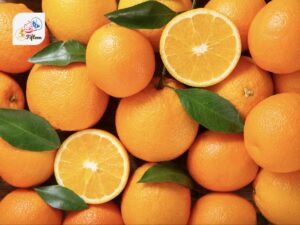
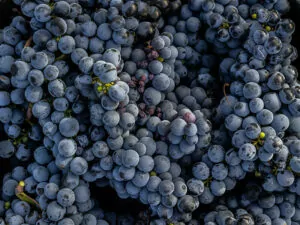
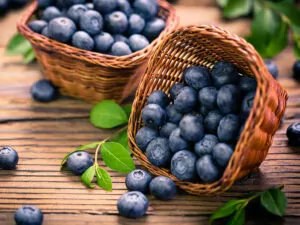
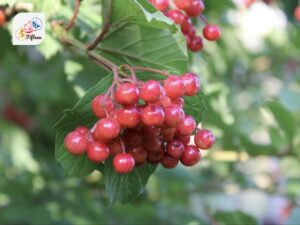
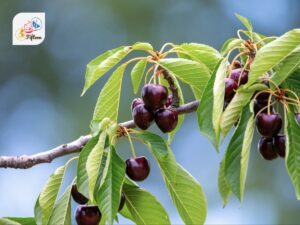
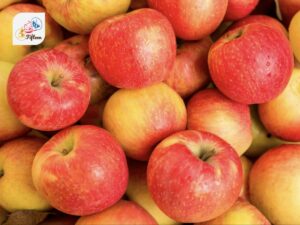
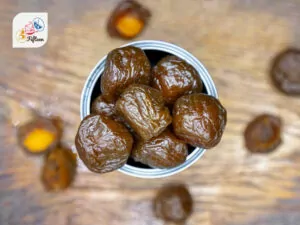
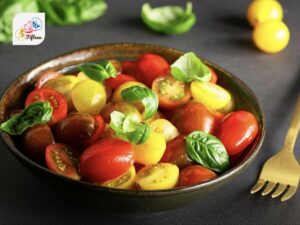
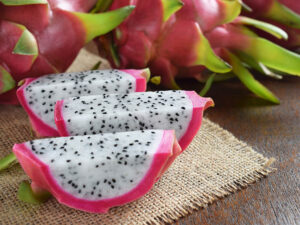
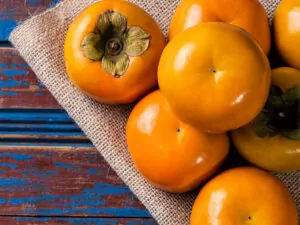
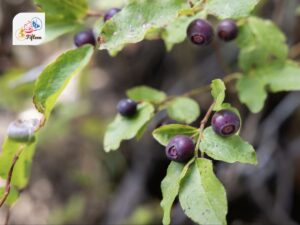
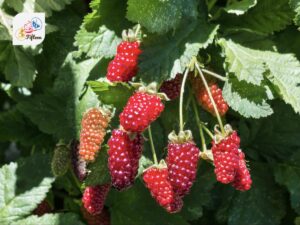
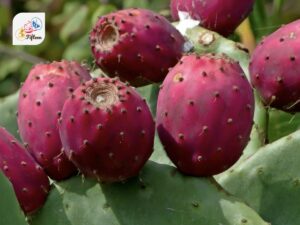
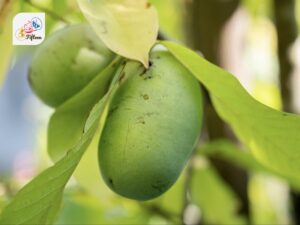
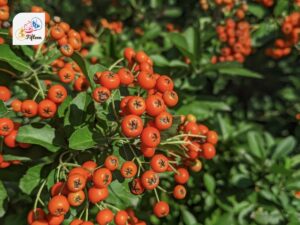
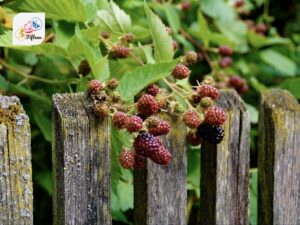
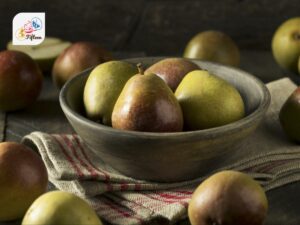
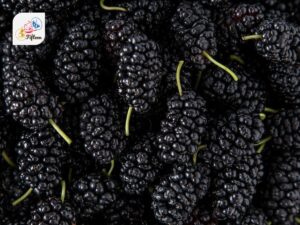
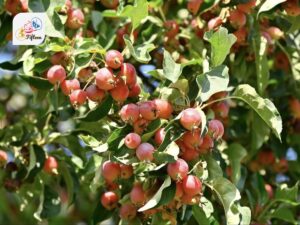
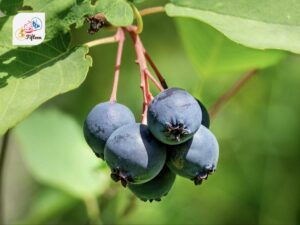
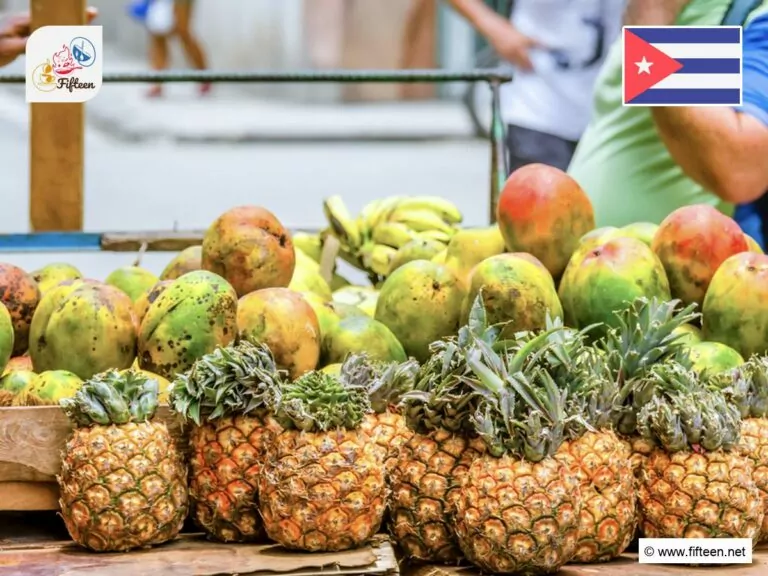
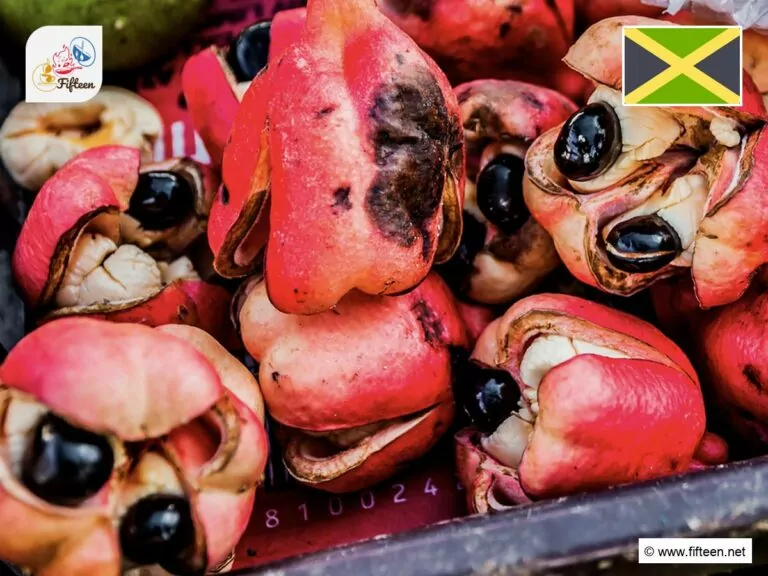
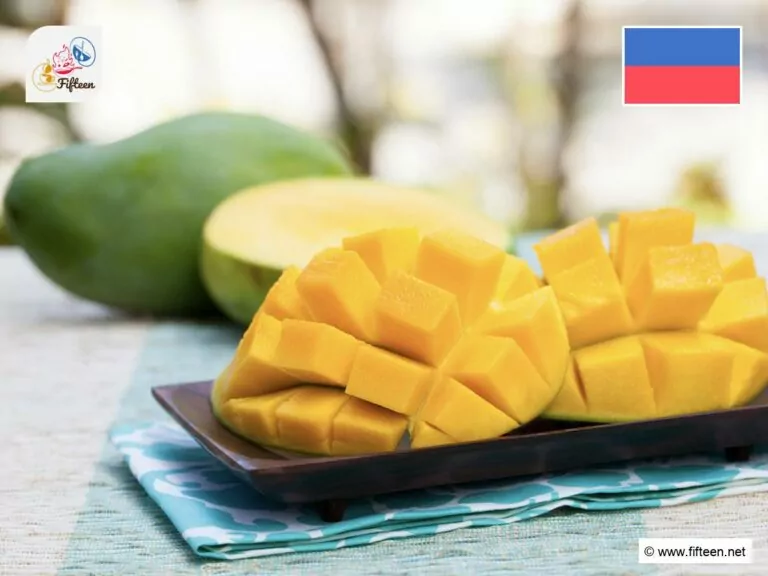
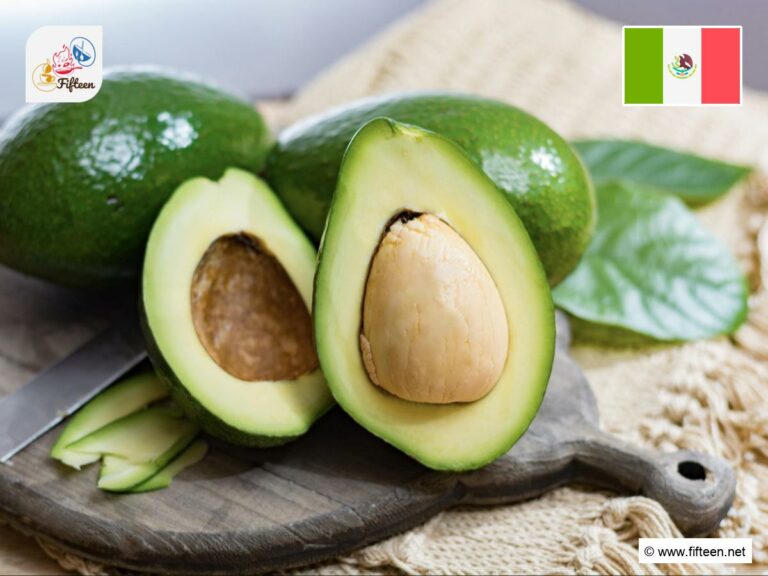
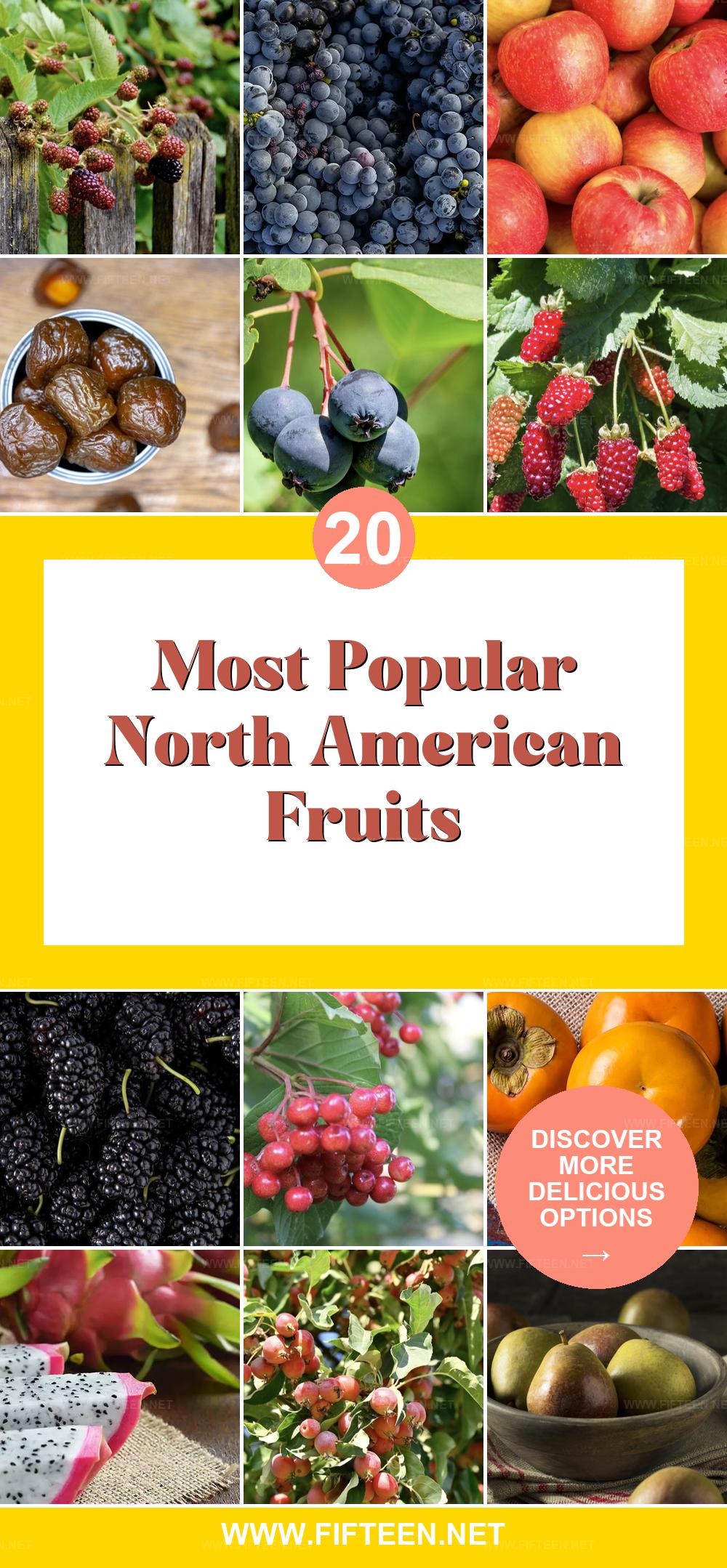
Jamie Scott
Editor in Chief, Senior Content Writer
Expertise
Home Cooking, Meal Planning, Recipe Development, Baking and Pastry, Food Editor, Cooking-video Maker, Western Food Evaluation Expert
Education
Le Cordon Bleu College of Culinary Arts
Local Community College, New York, NY
Jamie Scott is a skilled culinary expert and content creator specializing in Western cuisine. With over 15 years in the culinary field and formal training from Le Cordon Bleu, Paris, Jamie deeply understands how to blend nutrition with delicious flavors. His passion for cooking matches his commitment to making healthy eating accessible and enjoyable.
On Fifteen.net, Jamie brings a fresh perspective to classic dishes and beverages, offering readers insightful recipes, cooking tips, and a fresh view on meal planning that emphasizes taste, health, and simplicity.